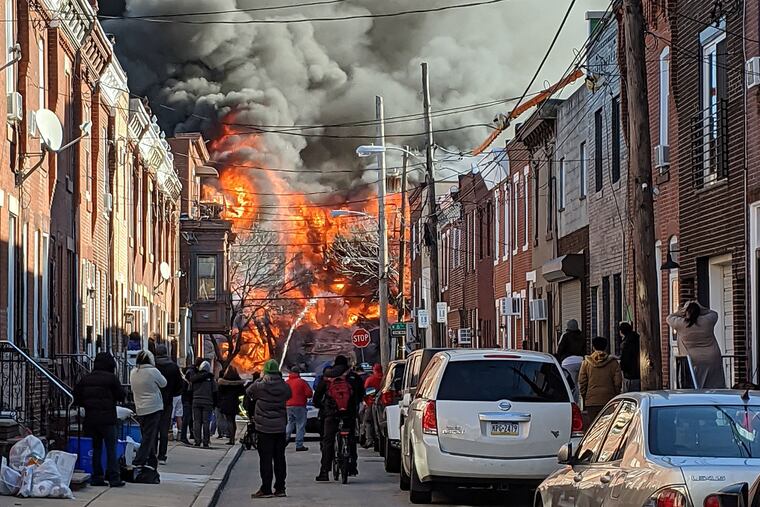A way to prevent devastating explosions like the one that hit South Philly | Opinion
What happened in South Philly was a tragedy that should never happen again. But it will, if we don’t prioritize a transition off of natural gas — a resource that will soon be obsolete anyway.

Two months later, South Philadelphia is still reeling from the explosion that tragically killed two people and destroyed five homes. Investigators found that it was caused by a leak in a 92-year-old, cast iron natural gas main under the street. While the material is no longer used due to its tendency to grow brittle and break over time, Philadelphia Gas Works still has nearly 1,500 miles of these weakening pipes crisscrossing the city, according to their own reports. PGW’s Executive Vice President was even cited saying that 6,000 miles of their gas mains date back to 1900.
The City of Philadelphia has committed to reaching 100% clean renewable energy by 2050, and ending our reliance on natural gas is an important part of reaching that goal. Gas leaks release methane, a potent greenhouse gas. Per our research at the Pennsylvania Public Interest Group, oil and gas facilities in Pennsylvania emit 520,000 tons of methane annually — five times greater than the amount self-reported by the industry to the Pennsylvania Department of Environmental Protection.
Our city has the opportunity to lead by example on this issue, but it’s not just the environment that depends on the actions we do or do not take over the next decade. The threat of future gas line leaks and explosions have many South Philly residents worried about the consequences of continuing to use this worn out infrastructure. Gas leaks are common and can happen at any point in the gathering, transmission, or storage process. This risk threatens the safety of residents in a city where so much of the gas piping is outdated.
Electrifying buildings and homes across the city would provide the infrastructure we need to get off of gas for the sake of public safety and our environment. Decision makers should spend the money now to repair the most damaged gas lines, while creating a plan to transition the city to electrification.
In a historic city like Philadelphia, retrofitting old buildings would be a nightmare. So to make this transition smooth, we should prioritize policies which require all new buildings and houses to be heated and powered by electricity, not gas. The city should also offer rebate programs and low-interest loans to help homeowners, contractors, and builders make the initial lift of electrification. It is crucial that our leaders accelerate the planning process, so they can meet their 2050 renewable energy deadline.
In the meantime, there are steps that homeowners can take to electrify their own homes. The most affordable way to transition a home is to take advantage of the opportunities for sustainable replacement. Furnaces wear out about every 30 years, so when you’re ready to replace it or if you’re remodeling your home, consider replacing the furnace with an electric heat pump. The same goes for gas stovetops; when the time comes, consider replacing it with an electric stove. If you’re building a new home or renovating your home’s systems, geothermal and solar are also great options to reduce your use of gas. These steps may require a larger up front investment, but often save consumers in the long term for being more efficient and lasting longer.
What happened in South Philly in December was a tragedy that should never happen again. But it will, if we don’t prioritize a transition off of natural gas - a resource that will be obsolete in a few decades anyway. Our leaders should stop investing in this failing infrastructure that threatens our safety and the environment, and start making the switch to electricity powered by renewables. This will make our city a cleaner, safer place for all residents.
Emma Horst-Martz is a Philadelphia native and works as a Campaign Associate for PennPIRG, a consumer advocacy organization in PA.